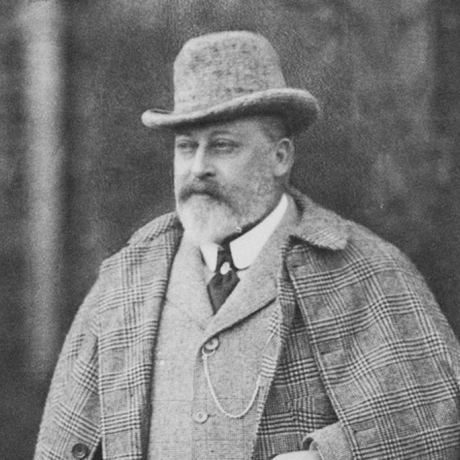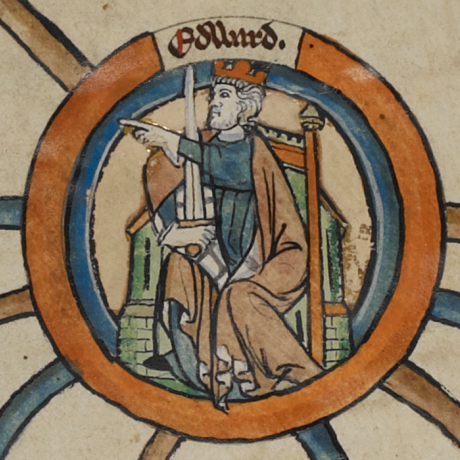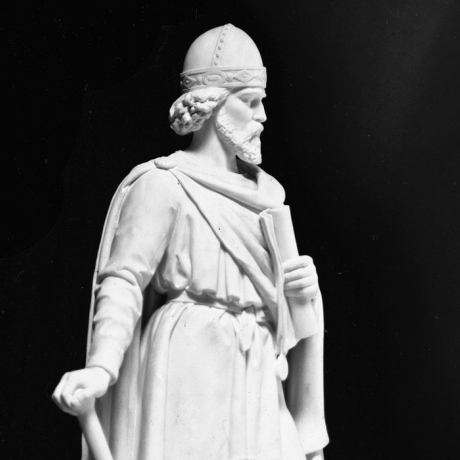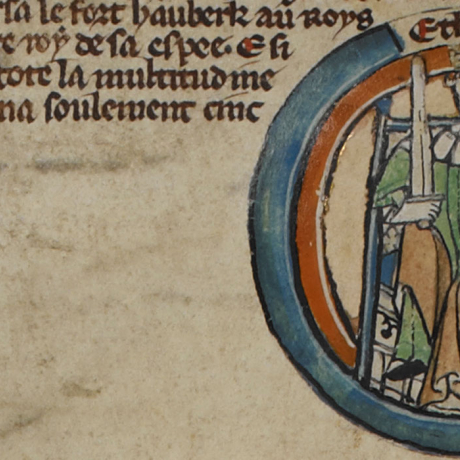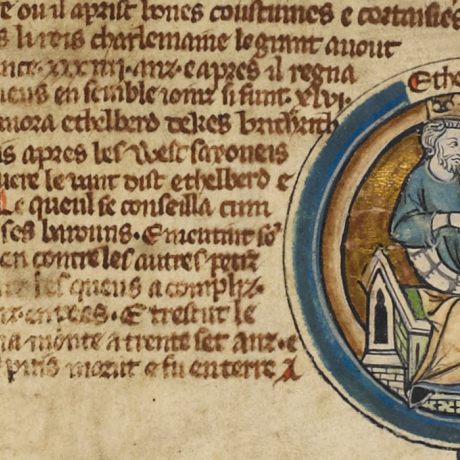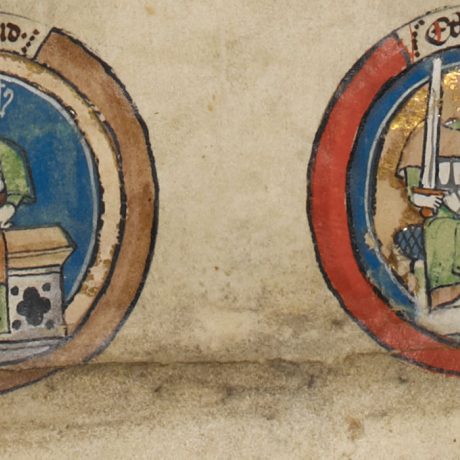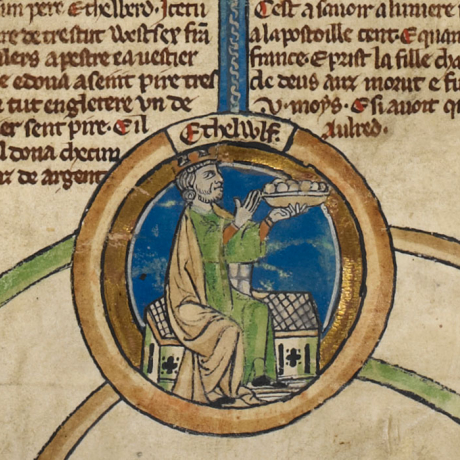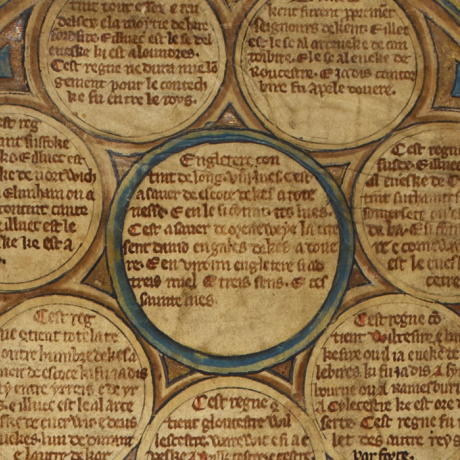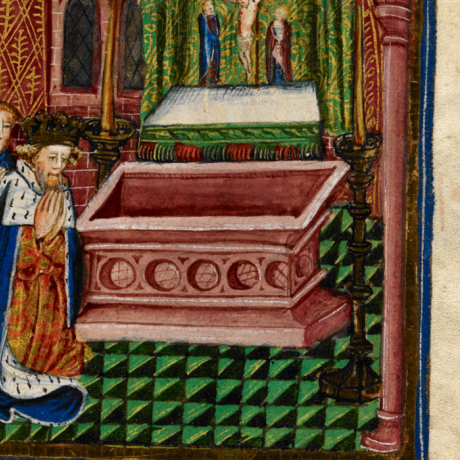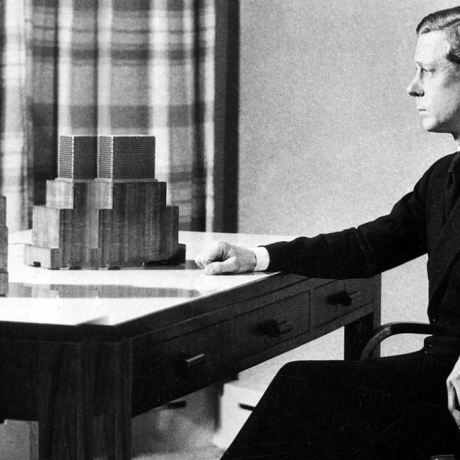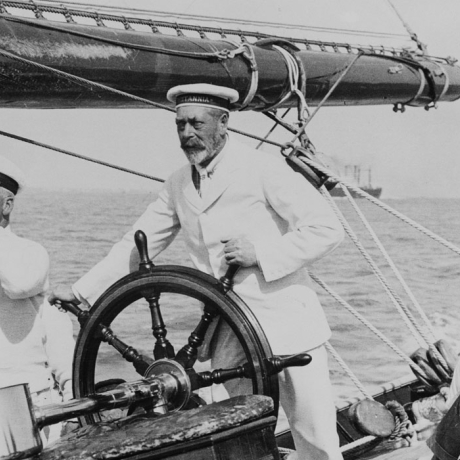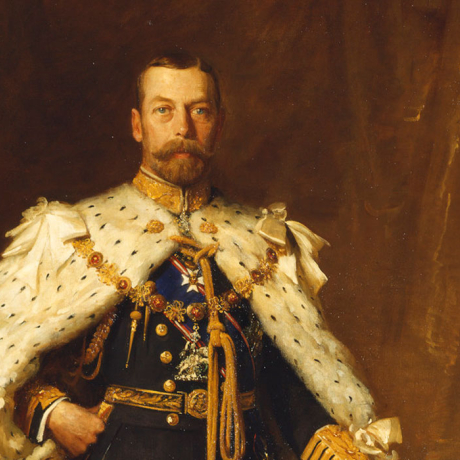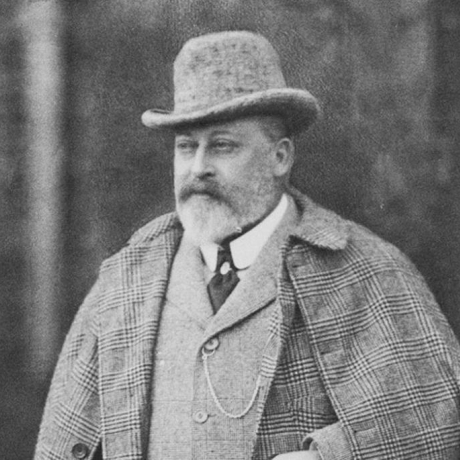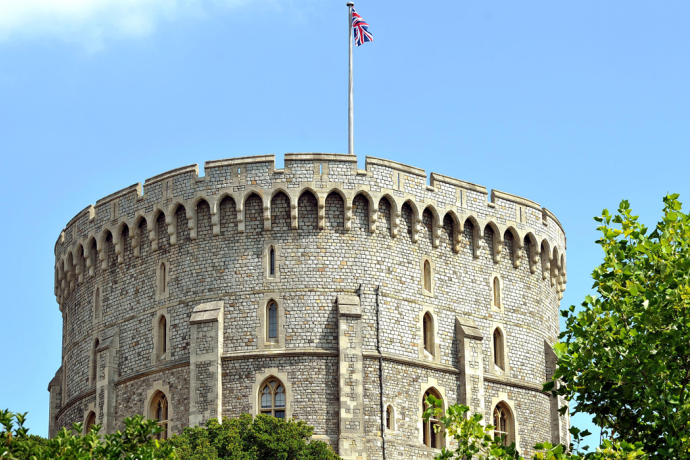Prince Albert Edward was born at Buckingham Palace on 9 November 1841, the eldest son and second child of Queen Victoria and Prince Albert. Named after his father, he was known to his family and close friends as Bertie. He was created the Prince of Wales on 8 December 1841 and baptised on 25 January 1842 in St George's Chapel, Windsor. He was created the a Knight of the Garter in 1858, a Knight of Thistle in 1867 and in 1868 a Knight of St Patrick.
Queen Victoria and Prince Albert were anxious that their son's education should fit him sovereignty; consequently at the age of seven, he embarked on a strenuous educational regime devised by Prince Albert. Driven hard in his youth, the heir to the throne was often overtired and rebellious.
The Prince hoped for a career in the Army, but as heir to the throne this was denied him and he served only briefly in the Grenadier Guards in 1861. In October 1859 he matriculated as an undergraduate at Christ Church, Oxford, transferring in 1861 to Trinity College, Cambridge. During the long vacation of 1860, at the invitation of the Canadian government, he made a tour of Canada; this was followed by a visit to the United States at the invitation of President Buchanan. He was the first heir of the throne to cross the Atlantic.
On 24 September 1861 the Prince met his future wife, the Danish Princess Alexandra (late Queen Alexandra), in the Cathedral at Speyer, Germany. On 9 September 1862 he proposed to Alexandra and they were married on 10 March 1863 at St George's Chapel, Windsor. The couple went on to have five children : Prince Albert Victor, Prince George (later George V), Princess Louise, Princess Victoria and Princess Maud.
During his mother's reign, he undertook public duties (including working on Royal Commissions in the field of social issues), but he was excluded by his mother from acting as her deputy until 1898. His high society lifestyle as Prince of Wales caused her considerable misgiving.
Edward was 59 when he became King on 22 January 1901, on the death of his mother Queen Victoria. The Coronation was set for 26 June 1902, but only two days beforehand the King was forced to postpone it until 9 August, owing to an attack of appendicitis which required an emergency operation.
Edward's main interests lay in foreign affairs, and military and naval matters. Fluent in French and German, he made a number of visits abroad (in 1904, he visited France - a visit which helped to create the atmosphere which made the subsequent Anglo-French entente cordiale possible); he was related to nearly every Continental sovereign and came to be known as the 'Uncle of Europe'.
Edward also played an active role in encouraging military and naval reforms, pressing for the reform of the Army Medical Service and the modernisation of the Home Fleet.
In the last year of his life he was involved in the constitutional crisis brought about by the refusal of the Conservative majority in the Lords to pass the Liberal budget of 1909.
Edward died before the situation could be resolved by the Liberal victory in the election in 1910. He died on 6 May 1910 aged 68, he lay in state at Westminster Hall, where a quarter of a million people filed past his body. On 20 May he was buried in St George's Chapel, Windsor. His son George became King.

